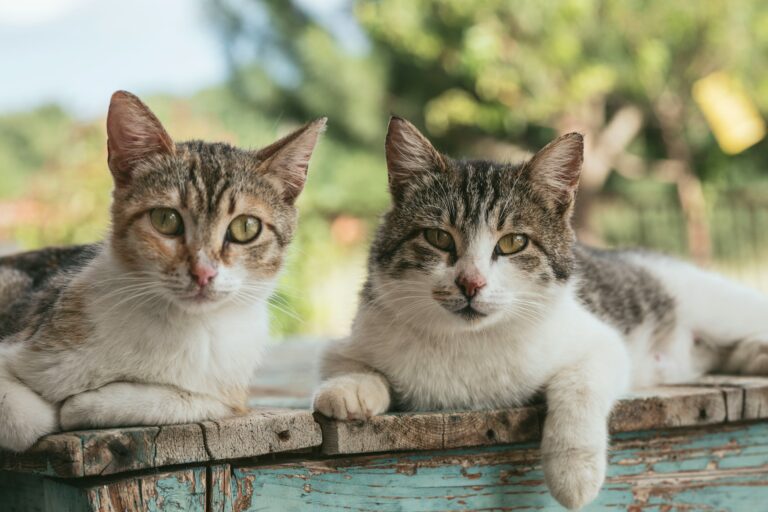
Are you considering welcoming a furry feline friend into your home? Understanding the characteristics of the most common cat breeds can help you make an informed decision about which breed might be the best fit for you and your lifestyle.
Here’s a look at some of the most beloved cat breeds in the UK, known for their unique traits and endearing personalities.
The quintessentially British breed, the British Shorthair, has a distinctive stocky body, dense coat and charming, round face. This breed is known for being affectionate, making it a perfect family pet. They are notably calm and easygoing, which complements a variety of household environments.
The Siamese cat, with its striking blue almond-shaped eyes and elegant, muscular body, is a marvel of feline beauty and grace. This breed is known for its intelligence, playful nature and often engages in lengthy conversations with their owners. Siamese cats thrive on social interactions and form strong bonds with their families.
Ragdolls are known for their mesmerising blue eyes and beautiful semi-long hair, they are gentle and often seek physical affection, making them ‘lap cats’. Ragdolls are ideal for homes that can provide them with plenty of love and cuddles.
The Bengal cat has a stunning wild appearance with a coat that resembles leopards and ocelots. This breed is vibrant and athletic, requiring regular exercise and mental stimulation. Bengals are particularly interactive and enjoy games that challenge their agility and intelligence.
As one of the largest domesticated cat breeds, Maine Coons are distinguished by their tufted ears, bushy tails and luxurious coats. They are known as gentle giants and possess a friendly and sociable nature. Maine Coons are excellent companions for children and get along well with other pets.
The Scottish Fold is easily recognised by its unique folded ears, giving it a cute owl-like appearance. These cats are incredibly affectionate and calm, preferring quiet environments where they can spend time with their human companions. Their gentle and easygoing nature makes them suitable for families and single-person households alike.
The almost-hairless Sphynx cat stands out due to its exposed skin and pronounced wrinkles. While this doesn’t make them hypoallergenic, they are known to produce fewer allergens than many fluffy cat breeds. Sphynxes are known for their loyalty and playful attitudes, and love to seek warmth and affection from their owners.
The domestic cat which is commonly known as a ‘Moggie’ is the most common cat living in UK homes. However, this cat is of no particular breed and has instead descended from the African Wildcat. Because of their random breeding, they do not have a definite appearance or temperament, so can come in all sizes, coat lengths and colours – from black and white to tabby or tortoiseshell.
When selecting a cat breed, don’t just consider the cat’s physical characteristics and personality traits but also your living situation, the cat’s activity level, and the amount of time you can dedicate to caring for and interacting with your pet. Each cat breed has unique needs and qualities, and finding a compatible companion is essential.
For further advice and quality pet care, contact your local St Kitts practice:
St Kitts Vets Hartley Wintney: 01252 844044
St Kitts Vets Basingstoke: 01256 844944
Crookham Park Veterinary Centre: 01252 913990
Firgrove Veterinary Centre: 01252 877799
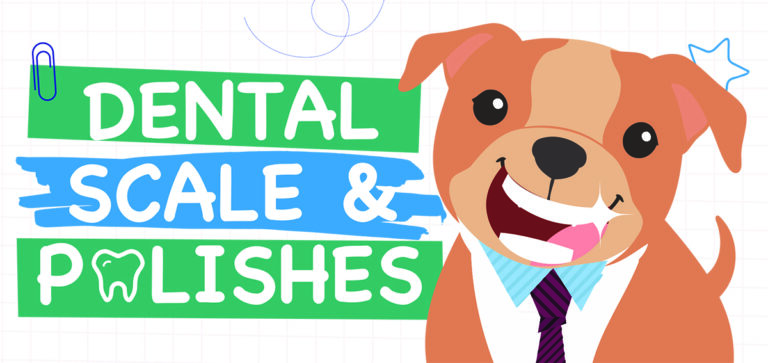
As the summer draws to a close and the back-to-school season begins, it’s the perfect time to focus on your pet’s health – starting with their smile!
This September, St Kitts Vets is excited to offer an exclusive Dental Scale & Polish service at our Hartley Wintney branch, all at a special discounted price of just £250.
Just like humans, pets are susceptible to dental problems such as plaque buildup, tartar, and gum disease. If left untreated, these issues can lead to more severe health concerns, including infections, tooth loss, and even systemic illnesses. Our Dental Scale & Polish not only cleans your pet’s teeth but also helps prevent these problems from developing in the first place. Regular dental care is essential for maintaining your pet’s overall health and wellbeing.
Our comprehensive dental service is designed to give your pet a healthy mouth and a bright, clean smile. Here’s what you can expect:
To make sure your pet is a good candidate for our Dental Scale & Polish, we’re offering a FREE Pre-Scale & Polish Dental Check with one of our experienced veterinary nurses. This preliminary check will allow us to assess your pet’s dental health and discuss any specific concerns you may have.
Whether your pet is gearing up for back-to-school photos or simply needs a thorough dental cleaning, our September offer is the perfect opportunity to give them the gift of a healthy smile. Don’t miss out – this exclusive discount is only available at our Hartley Wintney branch throughout September.
To schedule your free pre-check and take advantage of this limited-time offer, call us on 01252 844044 or visit our Hartley Wintney branch today.
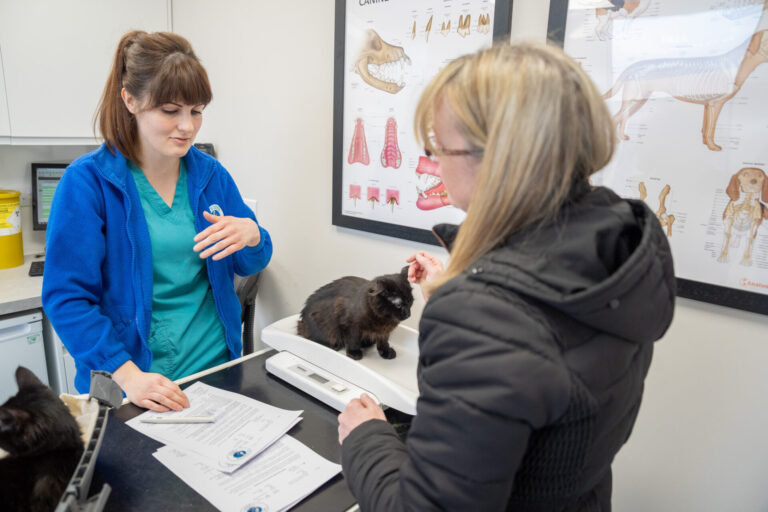
Regular vet check-ups are crucial for several reasons, all of which contribute to your pet living a long, healthy and happy life. During these routine appointments, your vet will be on the lookout for symptoms of illness, internal health issues and other conditions that may need addressing.
Here, our team at St Kitts Vets explain what makes regular check-ups so important.
Unlike us, pets can’t communicate when they are feeling unwell or experiencing discomfort. During a routine check-up, our vets will perform a thorough examination to identify any potential health problems early on. Early detection allows for timely intervention and treatment, which can significantly improve the outcome and may even save your pet’s life.
Prevention is always better than cure. Regular vet check-ups help ensure that your pet is up-to-date on vaccinations, parasite prevention, and other essential preventive measures. This significantly reduces the risk of your pet contracting avoidable diseases and infections.
Every pet is unique, and their healthcare needs may vary based on factors such as breed, age, lifestyle, and pre-existing conditions. During check-ups, our vets can provide tailored health recommendations, including dietary advice, exercise plans, and behavior tips, to help your pet live a healthier and happier life.
Dental problems are common in pets and can lead to serious health issues if left untreated. Regular vet check-ups will mean your pet’s teeth, mouth and gums can be given a quick once over to help maintain good oral health.
As pets age, they become more susceptible to certain health conditions, just like humans. Regular check-ups for senior pets allow us to monitor their health closely, catch age-related issues early, and provide appropriate senior pet care to improve their quality of life.
Pet obesity is a significant concern, as it can lead to various health problems. During vet check-ups, your pet’s weight can be monitored, and our vets and nurses can offer guidance on proper nutrition and weight management if needed.
No one likes visiting the doctor or the dentist, pets included! However, regular visits are a great way to help your pet become familiar and comfortable with the clinic environment and our team. This will help to reduce stress and anxiety during subsequent visits.
Many countries have specific requirements for vaccinations and animal health certificates when traveling or moving with pets. Regular vet check-ups ensure your pet’s vaccinations and paperwork are up-to-date, making travel and relocation hassle-free.
As a member, you get two FREE health checks per year – one with a vet during your pet’s booster appointment, as well as one with a nurse 6 months later.
Other excellent benefits include:
And more!
*Tick control included with Plus Plans only.
**One nail trim included with Standard Plans.
You can find out more about our Pet Healthcare Plans here.
You can book a check-up with our team online, or by getting in touch with your local practice:
St Kitts Vets Hartley Wintney: 01252 844044
St Kitts Vets Basingstoke: 01256 844944
Crookham Park Veterinary Centre: 01252 913990
Firgrove Veterinary Centre: 01252 877799
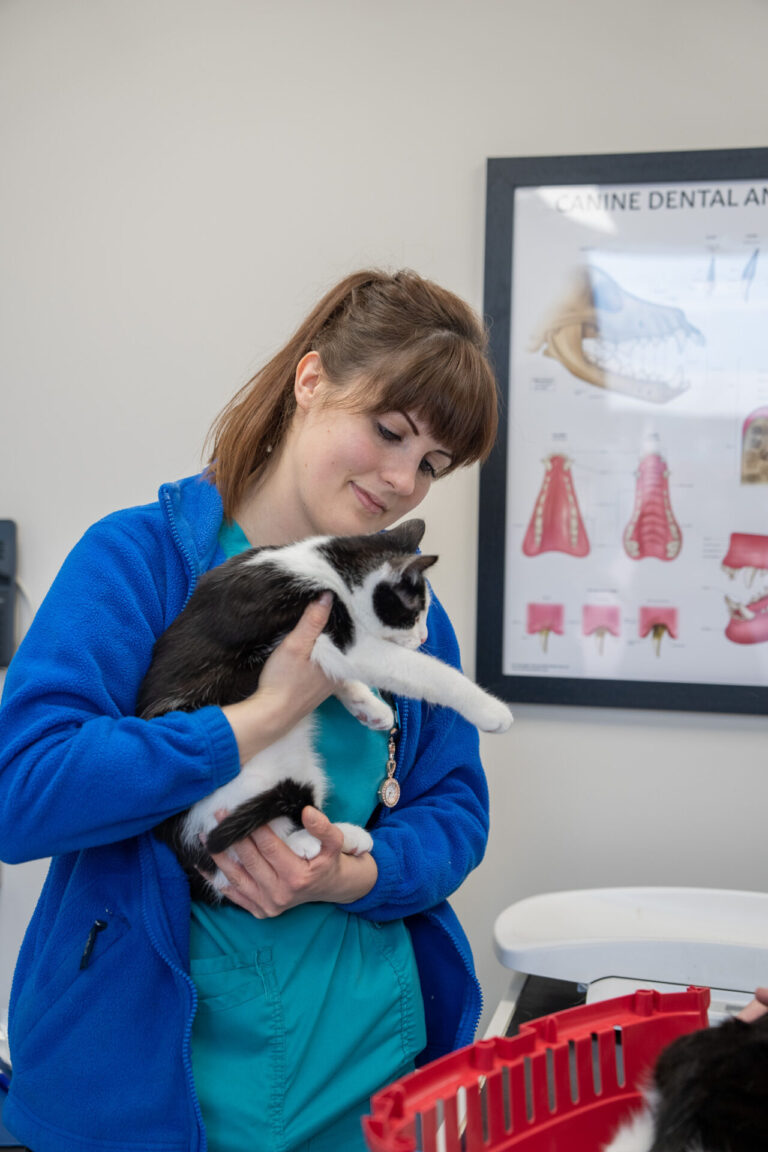
In 2024, the British Veterinary Nursing Association (BVNA) is celebrating two decades of campaigning during the month of May! To celebrate this year’s Veterinary Nursing Awareness Month, and to showcase the wonderful work of veterinary nurses around the world, we’re sharing an insight into #WhatVNsDo.
If you’re curious about veterinary nursing, or considering embarking on this field as a career, this blog has all you need to know.
RVNs have an essential role in caring for sick, injured and hospitalised animals, and are highly valued members of our team here at St Kitts.
Typical duties can include:
To become an RVN, you’ll need to complete a Veterinary Nursing qualification approved by the Royal College of Veterinary Surgeons.
There are two types of training:
A Level 3 Diploma in Veterinary Nursing usually takes between 2-3 years to complete full-time and is carried out alongside employment in a veterinary practice.
A Foundation Degree in Veterinary Nursing or BSc (Hons) Veterinary Nursing usually takes 3-4 years to complete. It is more academically focused however a significant proportion of the course involves work-based training at an approved training practice.
For the vocational training route, a minimum of 5 GCSE’s (alternative qualifications may also be considered) at grade C / 4 or above is required; these must include Science, Maths and English. Additional qualifications, such as A-levels, are required for enrolment onto a higher education course.
The majority of courses require students to have relevant work experience before applying, to develop animal handling and restraint skills, as well as obtain an insight into life as a veterinary nurse.
The demand for places on any Veterinary Nursing course is highly competitive. We always recommend that students gain as much practical experience as possible, regardless of the route they chose to take to qualify.
Work experience could include:
Here at St Kitts Vets, we’re proud to offer placements for both work experience and university students. Our placements provide hands-on experience and the opportunity to immerse yourself in the daily duties at our practices. It’s an excellent chance to practise the skills required and gain valuable insights into the industry.
To apply for a work experience placement, please click here.
To apply for a university placement, please click here.
If you’re interested in veterinary nursing and would like further information or support, please contact your local St Kitts practice:
St Kitts Vets Hartley Wintney: 01252 844044
St Kitts Vets Basingstoke: 01256 844944
Crookham Park Veterinary Centre: 01252 913990
Firgrove Veterinary Centre: 01252 877799
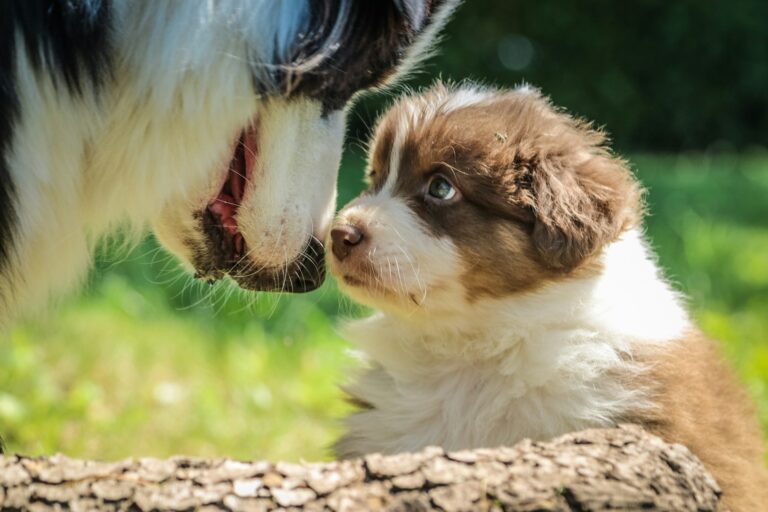
One of the most exciting things about bringing a new puppy home is introducing them to new people, animals, environments and experiences. This early exposure plays a crucial role in shaping a confident and sociable adult dog, and is known as puppy socialisation.
Puppies, like humans, go through a critical developmental phase when they are particularly receptive to new experiences. This period, typically from 4 to 12 weeks of age, is when puppies learn to navigate the world around them.
Proper socialisation during this window helps puppies become more confident and less fearful as they grow up. A well-socialised puppy is more likely to view new experiences, people and animals as fun and exciting, not frightening.
Many behavioural issues in adult dogs, such as aggression, anxiety and fear, can stem from inadequate socialisation during puppyhood.
By exposing puppies to a wide variety of stimuli in a positive and controlled manner, they learn to cope with new situations without resorting to negative behaviours.
Socialised dogs are typically less reactive and more adaptable, which means they’re less likely to develop issues like excessive barking, chewing, or aggression.
Socialisation experiences, especially positive ones, contribute to strengthening the bond between the puppy and its owner. It builds trust and confidence in the puppy’s ability to navigate new situations with the support of its human companion.
Socialised puppies are easier to manage and less likely to get into dangerous situations.
For example, a dog that’s comfortable around people is less likely to bite out of fear or anxiety. Similarly, a dog that’s accustomed to various sounds and sights is less likely to bolt or become uncontrollably frightened in noisy or busy environments. This not only keeps the dog safer but also protects people and other animals around them.
Socialisation lays the foundation for successful training. Puppies that have been well-socialised are typically more receptive to obedience training and can learn new commands more quickly and effectively.
Routine care, such as veterinary check-ups and grooming, can be stressful for dogs. However, if a puppy has been gently exposed to handling by different people and to various environments, they’re more likely to be calm and cooperative during these visits. This not only makes the process smoother but also helps ensure that your dog receives the best possible care without undue stress.
Socialised dogs are typically more pleasant companions in social settings, whether it’s meeting other dogs on walks, welcoming visitors to your home, or accompanying you on outings. They’re better equipped to read and respond to social cues from both humans and other animals, leading to more positive interactions and reducing the likelihood of misunderstandings or conflicts.
Begin socialisation as soon as you bring your puppy home, keeping in mind the balance between exposure and the puppy’s vaccination schedule.
Expose your puppy to different people, environments, sounds and animals, ensuring that these experiences are positive and not overwhelming.
Start with less intense experiences and gradually increase the level of stimulation as your puppy becomes more comfortable.
Use treats, praise and play to create positive associations with new experiences and people.
Socialisation is a process. Regular, gentle exposure to a variety of experiences is key to building a well-rounded adult dog.
If you would like more specific advice about socialising your puppy, contact your local St Kitts practice:
St Kitts Vets Hartley Wintney: 01252 844044
St Kitts Vets Basingstoke: 01256 844944
Crookham Park Veterinary Centre: 01252 913990
Firgrove Veterinary Centre: 01252 877799

We are incredibly happy to share that St Kitts Vets Basingstoke has passed its latest accreditation inspection from the Royal College of Veterinary Surgeons (RCVS) with flying colours! This means that all of our branches remain RCVS accredited under the Practice Standards Scheme (PSS).
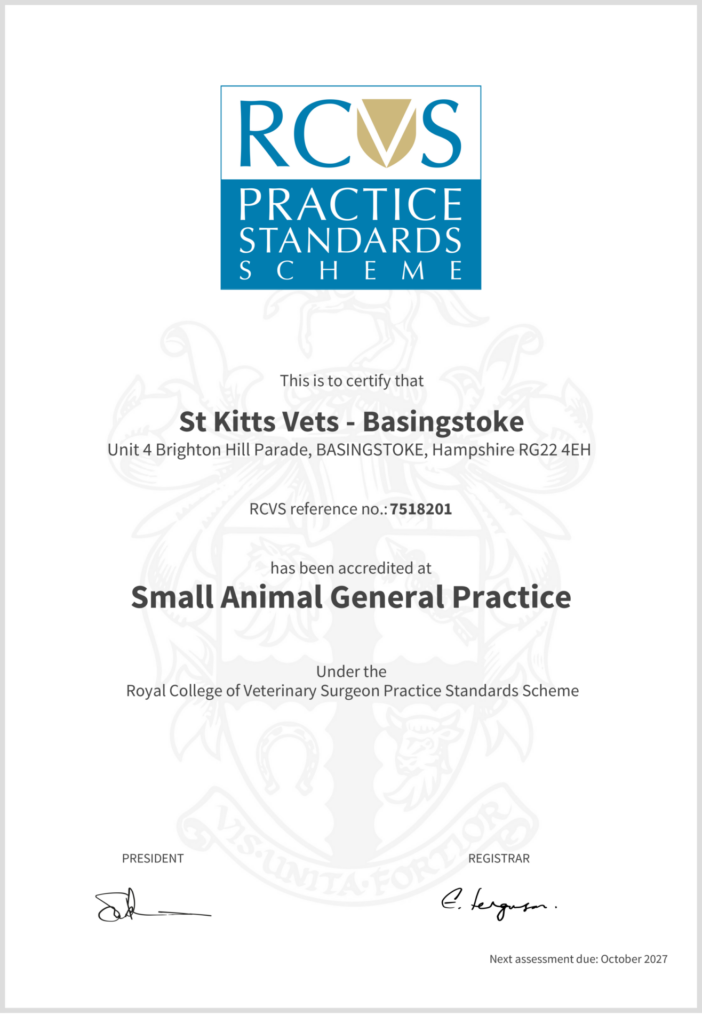
The PSS is a voluntary initiative run by the RCVS to accredit veterinary practices in the UK. It aims to promote and maintain the highest standards of veterinary care to give pet owners peace of mind and assurance that their pet is receiving the best of care.
Minimum standards are set by the RCVS for practices to attain and follow, which are assessed during a rigorous inspection process before accreditation can be awarded. These assessments are carried out regularly every four years, but a practice can be ‘spot checked’ at any time during this period to ensure standards are maintained.
Assessment criteria for ‘Core’ standards typically covers:
More recently, the criteria has even included environmental sustainability as another consideration.
On top of the ‘Core’ accreditation, practices can also gain species- or discipline-specific credentials. For example, all St Kitts Vets branches are accredited at Small Animal General Practice level.
The PSS accreditation is important to you and your pet for a number of reasons:
The RCVS is the regulatory body of veterinary surgeons and veterinary nurses in the UK. They regulate all aspects of the veterinary profession, including education, ethics, clinical standards and professional conduct.
If you see ‘MRCVS’ under a veterinary surgeon’s name, this indicates that they are registered with the RCVS and permitted to practice in the UK. To maintain these post-nominals, the vet must follow the RCVS code of professional conduct and keep their skills and knowledge up to date by means of continuous professional development (CPD).
For qualified veterinary nurses who are registered with the RCVS, you will see ‘RVN’ after their name. Similarly to vets, nurses must follow the code of professional conduct and continuous professional development.
For more information about our accredited practices, please contact your local St Kitts branch:
St Kitts Vets Basingstoke: 01256 844944
St Kitts Vets Hartley Wintney: 01252 844044
Crookham Park Veterinary Centre: 01252 913990
Firgrove Veterinary Centre: 01252 877799

As we head into spring, it’s a crucial time to be aware of ticks, which are most commonly found between the spring and autumn months. These common parasites can pose threats to your pets and family if left untreated.
In this article, we’re sharing how you can identify and safely remove ticks from dogs and cats (as well your other pets!) to help protect them from infections like Lyme disease.
Ticks are small, spider-like parasites that have eight legs and an egg shaped body. They are typically found in long grass and woodland areas.
Unlike fleas, they don’t jump, but will latch onto your pet’s fur if they brush past. They can feed on their blood for a few days before dropping off once they’ve had enough. However, during this time, there’s a risk the tick could transmit a disease to your pet.
It’s important to check your pet’s fur regularly for ticks, paying close attention to areas like their ears, neck and paws.
You may notice ticks become darker in colour, as they feed on your pet’s blood.
When removing a tick, make sure you don’t squeeze the tick’s body or leave the head in, as this can push blood back into your pet and increase the chance of infection or disease transmission.
If you see a black spot, redness or swelling where the tick was located, it is likely the tick was only partially removed. In these cases, there is a higher risk of infection, so it’s best to book an appointment with your vet to get your pet checked over.
To avoid causing the tick to split, you’ll need to twist it off. This can be done easily using a tick removal tool, widely available at vets and pet shops.
Some people try to burn ticks off, or use lotion to suffocate them; we strongly advise against this. These methods can harm your pets and will not prevent disease.
Lyme disease is a severe bacterial infection carried by ticks. Dogs, cats and humans can all get Lyme disease, although it’s rare in cats.
Symptoms to look out for include (but may not be limited to):
Lyme disease can be treated with antibiotics, if detected early. If you are concerned that your pet may have Lyme disease or is showing any of the listed symptoms, contact your vet immediately for tests and prompt treatment.
It’s possible to protect your pet from ticks. With different types of preventative tick treatments, such as spot-on treatments and tablets available, that kill or repel ticks if they attach themselves.
Tick treatment is included with our Pet Healthcare Plus Plans, with products delivered straight to your door. Our Plus Plans also cover:
To find out more about our Pet Healthcare Plans, click here.
If you are worried about removing the tick yourself, or have concerns about your pet’s health, contact your local St Kitts practice immediately:
St Kitts Vets Hartley Wintney: 01252 844044
St Kitts Vets Basingstoke: 01256 844944
Crookham Park Veterinary Centre: 01252 913990
Firgrove Veterinary Centre: 01252 877799

Easter is a time of joy, celebration, warmer weather and, of course, lots of chocolate! But it also brings potential hazards for our furry friends. Pets, curious and eager to explore, may find themselves in risky situations, whether it be around certain foods or even out in the beauty of nature. In this article, we’re highlighting some of the common Easter dangers for pets and tips on how to keep them safe.
Generally, at this time of year, there’s no shortage of sweet treats in our homes, though this does mean there are more opportunities for our pets to get their paws on whatever they may find lying around.
Surveys by the British Veterinary Association (BVA) have found that around three in five vets treated pets for chocolate poisoning during the Easter holidays. These stats have changed very little over the years, indicating that more needs to be done to highlight the danger chocolate poses to pets.
Chocolate and sweets are toxic to both dogs and cats, containing substances like theobromine, xylitol and caffeine that can cause side effects like vomiting, diarrhoea, rapid breathing and increased heart rate, among others. Symptoms can take anywhere between 4-24 hours to show, so it’s really important to get in touch with your vet immediately if your pet has eaten anything they shouldn’t have.
Dogs are typically the ones who are most tempted, as cats and rabbits can’t taste the sweetness, but it’s best to keep any Easter eggs and other human treats far out of reach in fridges, cupboards or drawers.
While spring is a time where our gardens and homes brighten up with beautiful blooms, it can also pose a serious problem in cases where some plants are toxic to our pets.
For an extended list of plants that are harmful to pets, please read our other articles:
They’re an Easter favourite for us humans, but come with a word of warning: don’t share these with your pets! Raisins and sultanas, along with many other dried fruits, are known causes of kidney failure in both cats and dogs, even it’s just a small quantity.
If you arrange an Easter egg hunt in your garden, just make sure that all have been found before you let your dog outside, as they’ll easily find any that have been left behind. Even if you’ve used plastic or hard boiled eggs instead of chocolate ones, these can still be harmful, causing blockages or other digestive issues.
The hustle and bustle of Easter celebrations can be overwhelming for pets – particularly if travel is involved. Many pets don’t respond well to changes in routine, which can cause stress. Look out for changes in their behaviour, including becoming withdrawn or more reactive, panting and shaking, or needing the toilet more than usual.
We hope you and your pets have a safe and wonderful Easter!
If you suspect your pet may have eaten something they shouldn’t have, please get in touch with your local St Kitts practice:
St Kitts Vets Hartley Wintney: 01252 844044
St Kitts Vets Basingstoke: 01256 844944
Crookham Park Veterinary Centre: 01252 913990
Firgrove Veterinary Centre: 01252 877799

At St Kitts, we’re proud to be creating a more sustainable future. As veterinarians, we’re conscious we have a responsibility to protect the environment, to ensure the health and welfare of animals both locally and around the world.
That’s why we’ve teamed up with Carbon Footprint, to embark on an exciting new project to plant trees to offset our carbon emissions and put a vital new sustainability policy in place.
As part of our new sustainability policy, we’ve planted 4 trees in the South East of England, one for each of our branches. By doing this, we’ve successfully offset 4 tonnes of carbon (4 tCO2e).
And we now have the certificates to prove it! Each is endorsed by Verified Carbon Standard (VCS) approved carbon credits, to guarantee carbon offsetting through verified carbon reduction projects and tree planting initiatives.

Trees are the longest living species on earth and are vital to maintaining our biodiversity and climate. Some Oak trees live for over 1000 years, serving as essential long-term carbon stores.
By planting trees, we’re benefiting local communities and aim to inspire future generations to reduce their environmental impact, which is a crucial part of our Corporate Social Responsibility commitment.
As a veterinary group, we’re proud to take proactive steps towards being environmentally responsible, prioritising animal welfare and the planet.
In addition to planting trees, we’ve implemented a new sustainability policy, in line with Vet Sustain’s Greener Veterinary Practice Checklist, to minimise the environmental and carbon footprint of all our veterinary services and operations.
By the end of 2025, our goal is to reduce carbon emissions across our four practices by 10%.
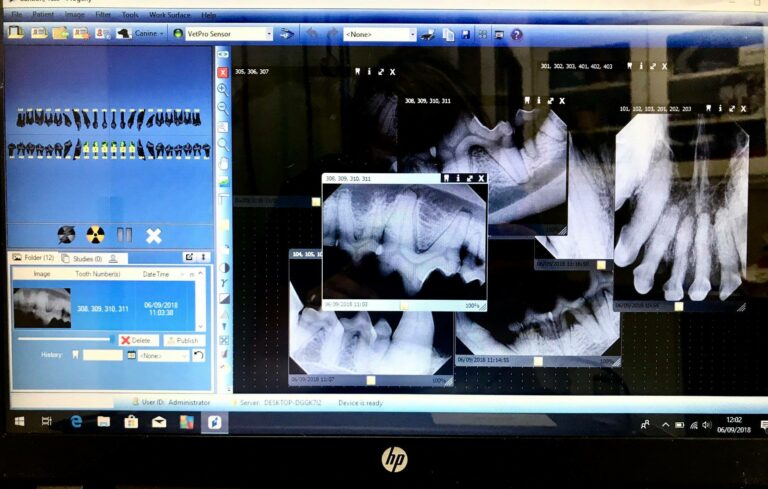
Pet dental care is just as important as brushing teeth twice a day is to us humans!
Preventative care is key to helping prevent the build-up of tartar, reduce the risk of tooth decay and gum disease, and prevent discomfort and pain.
Our fully equipped practices enable our veterinary surgeons to diagnose and treat a range of dental conditions. We have state-of-the-art facilities, including:
Poor dental health can cause problems for pets, with some of the most common symptoms including:
We recommend brushing your cat’s and dog’s teeth daily and providing them with a partially dry diet, including hard biscuits, which are particularly effective at removing plaque. We can also advise on products to help reduce plaque build-up and bad breath.
When it comes to dental treats, these should be given in moderation, as many can be high in calories.
Unlike cats and dogs, rabbit’s teeth continue to grow throughout their lives; this can lead to additional dental concerns. Providing a high fibre diet and encouraging chewing is central to ensuring that a rabbit’s teeth remain healthy, however; it is important to have regular dental checks in order to spot any potential problems early.
If a rabbit does not eat enough fibrous food to wear down the growing teeth or the teeth are misaligned for any reason, they can become overgrown and dig into the soft tissue of the mouth, causing pain and preventing the rabbit from eating properly.
Sings of dental disease in rabbits are similar to those seen in cats and dogs such as:
To fully examine the mouth, the vet will need insert a small scope into the rabbits mouth to visualise the cheek teeth. This can be done in a consultation and is not painful.
Our Pet Healthcare Plans are designed to save you money by spreading the cost of routine and preventative treatment with low monthly payments.
Members get access to exclusive discounts on products and services at St Kitts Vets, including dentals, neutering and our in-house laboratory.
Additional benefits include:
*Tick control included with Plus Plans only.
Sign up today and start saving!
If you have concerns about your pet’s teeth, please book a consultation online or contact your local St Kitts practice immediately.